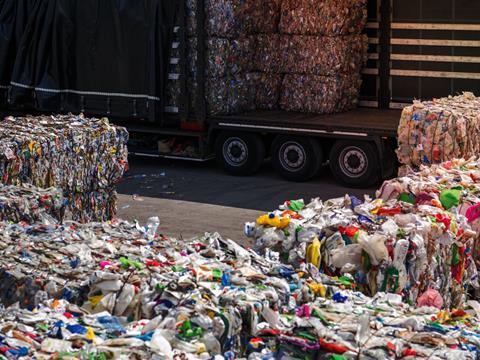
Carbios and De Smet Engineers & Contractors are joining forces in an engineering partnership to build what is claimed to be the world’s first PET bio-recycling plant, offering an expected processing capacity of 50,000 tons every year.
Carbios’ technology depolymerizes PET waste to provide an alternative raw material to petro-sourced monomers. This process is hoped to help PET producers, waste management companies, public entities, and brands meet regulatory requirements, as well as their own sustainability commitments.
With building and site operating permits acquired in October 2023, the plant is currently under construction in the Grand-Est Region in Longlaville, France, on land recently acquired from Indorama Ventures.
Apparently, its 50,000-ton capacity will extend to waste that is currently considered to be low-value, including coloured PET bottles, food trays, and textiles – processing the equivalent of 2 billion coloured PET bottles, 2.5 billion PET trays, or 300 million T-shirts, the companies claim.
The completed facility is due for commissioning in 2025 and is anticipated to create 150 direct and indirect jobs in Longlaville. De Smet is set to handle project management and detailed engineering, which includes procurement assistance and the management of Carbios’ partners.
“De Smet was selected after a comprehensive bidding process, and we are very confident in our successful cooperation,” says Carbios CEO Emmanuel Ladent. “De Smet has an excellent track record in the engineering and management of complex industrial projects and has extensive experience in water-based technologies.
“With our combined expertise and shared ambition, this collaboration marks a significant step towards fulfilling Carbios’ vision of a sustainable future for plastic and textiles.”
Dimitri de Suraÿ, CEO of De Smet Engineers & Contractors, added: “Perfectly aligned with our ambition to contribute to the environmental transition by implementing novel biotechnology process and by boosting the bioeconomy, we are proud to support Carbios’ groundbreaking investment, thanks to our agility in project execution which ensures its timely and competitive industrial realization.
“We are thrilled to have been entrusted by Carbios with the construction of the plant and are fully committed to the success of this innovative project.”
Previously, scientific journal ACS Catalysis named Carbios’ PET-degrading enzyme the best-performing under industrial conditions, comparing it to other enzymes produced by the Universities of Manchester, Greifswald, and Texas at Austin.
Packaging Europe also spoke to Dr Christian Sonnendecker from Leipzig University about the project he led to degrade PET by 90% within 16 hours, and the anticipated steps to scaling it up in line with existing recycling methods.
If you liked this article, you might also enjoy:
The Lidl approach to packaging sustainability
How did Brazil achieve its 100% aluminium can recycling rate – and can it be replicated in the EU?
Experts have their say on the EU’s Packaging and Packaging Waste Directive revisions
A deep dive into the most important packaging sustainability trends and solutions













No comments yet